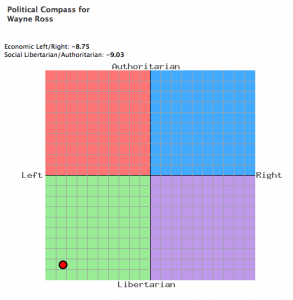 Statement of Support for Professor Litsa Chatzivasileiou
Statement of Support for Professor Litsa Chatzivasileiou
UBC Faculty for Palestine
November 25 2024
We write as members of University of British Columbia’s Faculty for Palestine, a solidarity network of over 100 members. We express our strong support for Professor Litsa Chatzivasileiou, who has been the target of unauthorized classroom surveillance and a smear campaign for her teaching on Palestine. On September 18, Professor Chatzivasileiou gave a lecture in her course titled “Global Issues and Social Justice” drawing on a series of scholarly sources, including the internationally recognized work of Palestinian scholar Nadera Shalhoub-Kevorkian and legal scholar Khaled Beydoun. During this lecture, Professor Chatzivasileiou was audio-recorded by an unknown person in violation of university policy.
A 12-minute recording of her lecture was shared with a journalist and subsequently two factually incorrect and inflammatory articles were released by CTV News Vancouver on November 20th and 21st. The headlines falsely claim that UBC is investigating her, a clear case of misreporting as there is no investigation happening or pending. Not only is she not being investigated, but in fact Campus Security at UBC is investigating numerous threats against Dr. Chatzivasileiou and her family that have resulted from this smear campaign. The article grossly misrepresented Professor Chatzivasileiou’s rigorously researched lecture, misquoting her in the written article and randomly deploying Youtube footage from a 2012 lecture for the video newsclip version. What CTV News describes as a “rant” was a careful elaboration of the critical thinking of important legal and feminist scholarship on the impact of the genocide on Gaza. It was delivered by an instructor with more than 20 years’ experience teaching at UBC who is beloved by her students as well as her colleagues and staff. The CTV segment falsely implied that Professor Chatzivasileiou’s words and actions were antisemitic – an assertion that we categorically reject.
This is not simply a case of poor journalistic standards as articles in this vein have real consequences. Since the publication of the article, Dr. Chatzivasileiou has received numerous threats of physical and sexual violence against her and her family. Such threats are meant to create a chilling effect in university classrooms, erecting obstacles to teaching and discussing the most pressing issues of our times. These intimidations constitute alarming threats to the academic freedoms of faculty and students and therefore fundamentally endanger the mission of the university.
Furthermore, according to UBC’s Principles for Recording Classroom Activities dated September 2021 students must seek recording permission from faculty and other students in the course directly “either from the instructor or through the academic accommodation process.” No such permission or accommodation was sought in Dr. Chatzivasileiou’s class. Even when the proper permissions are sought “such recordings are made for personal academic use, and are not for distribution (within or beyond the course)” according to UBC’s policies. The unauthorized taping of Dr. Chatzivasileiou’s class therefore violated not only university policy protecting faculty but also the rights of her students. There has been no prior or subsequent student complaint or grievance filed about the class, further suggesting that Dr. Chatzivasileiou was deliberately targeted for harassment. Absent a filed university complaint, the delay between the recording (September 18) and the release of the articles (November 20 and 21) suggests the goal was not to address a classroom situation but to publicly discredit and cause harm to Dr. Chatzivasileiou.
Misinformation and information warfare have served to dehumanize the Palestinian people and legitmize the Israeli state’s current campaign of genocide in Gaza and the West Bank. As faculty in support of Palestinian liberation, we firmly believe that rigorous education based on scholarship and faculty’s expertise–like the teaching of Dr. Chatzivasileiou– is more critical than ever. Surveillance, threats, and intimidation campaigns aim to silence faculty and students, and inhibit their rights to academic freedom, education, and freedom of expression. These smear campaigns are dangerous affronts to the university and all its community members.
We call for UBC to immediately 1) reiterate and uphold the university policy banning the unauthorized recording and sharing of lectures and classroom discussions; 2) reaffirm faculty and students’ rights to academic freedom with regards to education on Palestine, Palestinian liberation, and the Israeli state’s apartheid policies, military occupation, and genocide; 3) confirm, contrary to CTV’s claims, that no investigation of Dr. Chatzivasileiou has occurred; and 4) provide material support for faculty like Dr. Chatzivasileiou who are targeted and defamed through surveillance and smear campaigns.
Endorsed by:
Graduate Students for Palestine–UBC
Independent Jewish Voices–UBC
Jewish Faculty Network–UBC
UBC Social Justice Centre
UBC Solidarity for Palestinian Human Rights
UBC Staff for Palestine


